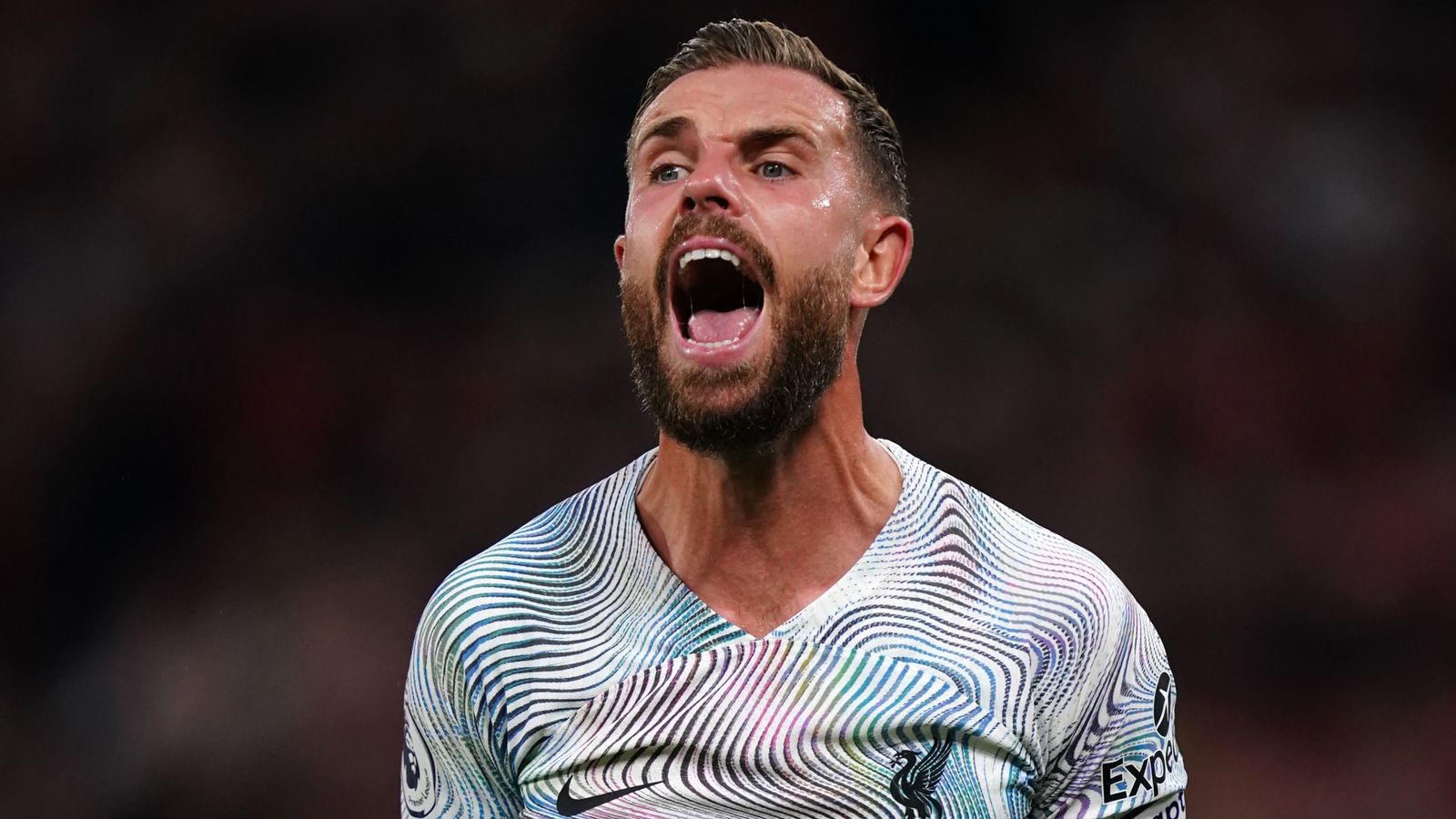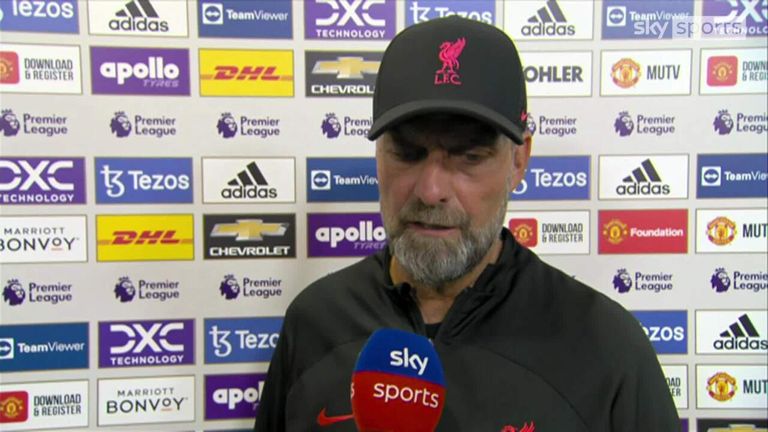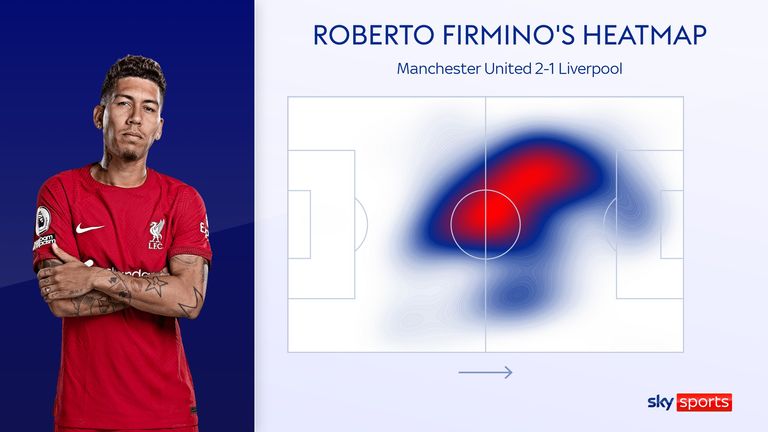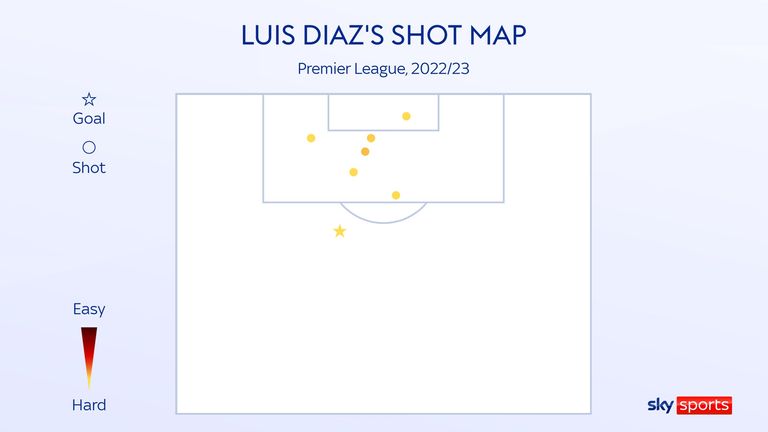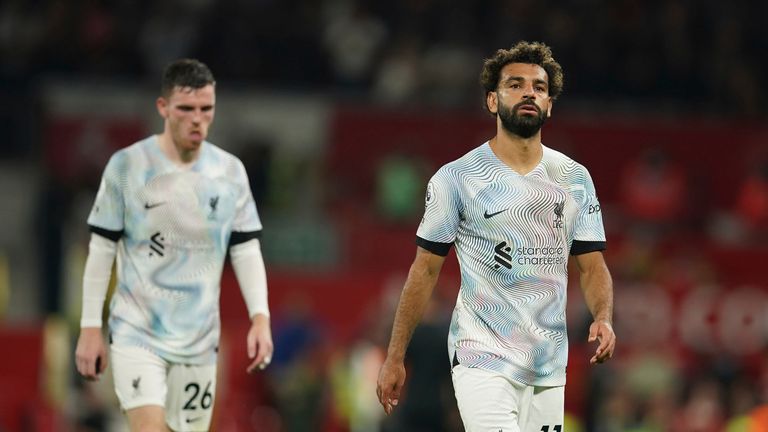“It is a game where it was 100 per cent clear what United would do,” said Jurgen Klopp. “Were they more aggressive than us at the beginning? Probably, yes. It was exactly the game that United wanted to play.”
There was a time when Liverpool used to play with that intensity but not right now. The defeat to Manchester United means they have failed to win any of their first three Premier League games of the season for the first time in a decade.
The previous two were not lost – in fact, the previous 21 were not lost – but there is a trend emerging. Liverpool have now conceded the first goal in their last seven Premier League games. Slow starts have become a feature for Klopp’s team.
He has long since evolved away from the heavy-metal football that was the hallmark of his early years. Liverpool are much more of a possession team now – the stats show that. But it was still jarring to see them so passive at Old Trafford. To see the biter bit.
“They were not at the races at all,” Jamie Carragher told Sky Sports. “United were outstanding, but Liverpool were not ready for a derby game. They did not look ready for the game and that will worry Jurgen Klopp right now.”
United made 118 more high-intensity runs than Liverpool on Monday evening, covering 3.1 kilometres more ground. It was unusual to see United show such energy but Liverpool supporters are becoming accustomed to seeing their side hurried.
Crystal Palace also outran them by three kilometres. Fulham covered almost seven kilometres more on the opening weekend as Liverpool ran less there than in any of their Premier League games last season. Fulham made 426 more high-intensity runs.
It has been a bizarrely sluggish start.
There is more to the game than running, of course. Liverpool’s shift in approach reflects the changes in personnel. Thiago picks passes. Fabinho controls from deep. But it was Jordan Henderson and James Milner at Old Trafford. That needs to mean energy.
This was only the third time that they have been paired together in midfield in the last 32 Premier League games and it did not work. With Milner now 36, it might not work many more times in the future. Lacking creativity and speed, Liverpool looked tired.
Even at their best, Klopp’s midfield has been damned with faint praise over the years – functional being the word most often used. The job was not to score or create but stifle and recycle, spread the play wide to those attacking full-backs and sustain the attacks.
That was enough when the front three were firing but the make up of this Liverpool side is a little different in attack now too. Sadio Mane has been sold and though there is optimism that he has been replaced with exciting talent, the skill-set is not quite the same.
Firstly, Roberto Firmino, 31 in October, is moving further and further from the opposition goal. There were some neat touches against Manchester United but they came nowhere near the penalty box and that puts a huge onus on the wide forwards to score goals.
Klopp noted that Mohamed Salah was operating too wide in the first half and that adjustment was made but Luis Diaz is a different type of player to Mane. His goal against Crystal Palace was magnificent but he is not finding the positions that his predecessor did.
Darwin Nunez, the new signing from Benfica, is a natural centre-forward and can be expected to make a difference in this regard. Diogo Jota will help too. He can be a poacher inside the six-yard box and his return from injury adds options and intensity in attack.
Against United, Klopp’s only attacking substitution was the introduction of young Fabio Carvalho. The teenager did well but it is hardly ideal. The final change was a like-for-like switch at left-back, bringing on Kostas Tsimikas for Andy Robertson. That tells a tale.
It is the crux of the question for Klopp right now – how many of these problems are solvable once the injury crisis has abated? For now, he can point to what he calls the witch’s curse but how many of them might be here to stay even if he has a full squad available?
Liverpool have been smart in their efforts to evolve the squad, bringing in young and hungry talent as others pass that peak age of performance. Nevertheless, it is natural that they remain reliant on their best players and those best players are ageing.
Virgil van Dijk, far too passive against United for Jadon Sancho’s goal, is 31. Salah is now 30. So far this season, only Chelsea and West Ham have named starting line-ups with a higher average age than Liverpool. Meanwhile, Arsenal, top of the table, have the youngest.
It is too soon draw to sweeping conclusions from that but what is certain is that when Newcastle visit Anfield next week, they will look to be aggressive. “Running stats are linked to success in the modern game,” says their head coach Eddie Howe.
“That is the way the game is going.”
The curiosity is that Klopp’s Liverpool, once at the vanguard of such thinking, appear to be moving in the opposite direction.

